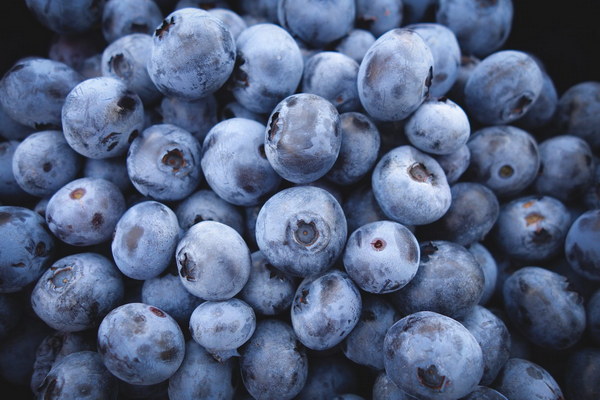Revitalize Your Lungs with Nature's Medicine The Art of Lung-Specific Herbal Diets
Revitalize Your Lungs with Nature's Medicine: The Art of Lung-Specific Herbal Diets
In the realm of traditional medicine, the lungs are often considered the primary source of vitality and life force within the human body. As the organ responsible for oxygen exchange and waste removal, the lungs are susceptible to various health challenges. Enter the world of lung-specific herbal diets, a time-honored practice that harnesses the power of nature to nurture and rejuvenate the respiratory system. This article delves into the art of lung-specific herbal diets, exploring their benefits, key ingredients, and how to incorporate them into your daily routine.
Understanding Lung-Specific Herbal Diets
Lung-specific herbal diets are designed to address the unique needs of the respiratory system. These diets typically include a blend of herbs, spices, and foods that are known for their lung-enhancing properties. The core principle behind these diets is the belief that certain natural substances can support lung health by reducing inflammation, improving circulation, and boosting immunity.
Key Ingredients for Lung Health

1. Elderberry (Sambucus nigra): This ancient fruit is renowned for its immune-boosting properties. Elderberry syrup is a staple in many lung-specific herbal diets, as it can help alleviate symptoms of colds and flu, which often affect the respiratory system.
2. Honey:
Honey has long been used as a natural cough suppressant and expectorant. Its antibacterial and anti-inflammatory properties make it an excellent addition to lung-healing teas and syrups.
3. Ginger (Zingiber officinale): This potent root is not only a flavorful addition to various dishes but also has powerful anti-inflammatory and expectorant properties. Ginger can help clear congestion and soothe the throat.
4. Thyme (Thymus vulgaris): This aromatic herb has been used for centuries to treat respiratory issues. Thyme contains compounds that can help reduce inflammation and support the immune system.
5. Licorice Root (Glycyrrhiza uralensis): Licorice root has been used in traditional Chinese medicine to soothe the respiratory tract and reduce inflammation. It is often included in lung-specific herbal formulas.
6. Peppermint (Mentha × piperita): Peppermint is a natural decongestant and expectorant that can help clear the lungs of mucus. Its menthol content also provides a refreshing sensation that can soothe the throat.
Incorporating Lung-Specific Herbal Diets into Your Routine
To incorporate lung-specific herbal diets into your daily life, consider the following steps:
1. Prepare Lung-Boosting Teas: Brew a blend of elderberry, ginger, thyme, and honey for a soothing and healing tea. Drink it regularly, especially during cold and flu season.
2. Add Herbs to Your Meals: Incorporate fresh or dried herbs like thyme, peppermint, and ginger into your cooking. These herbs can add flavor while providing lung-boosting benefits.
3. Herbal Syrups and Tinctures: Consider making or purchasing herbal syrups and tinctures designed to support lung health. These can be taken directly or added to drinks.
4. Proper Hydration: Ensure you are consuming enough fluids throughout the day. Water, herbal teas, and broths can help keep the respiratory system hydrated and reduce mucus production.
5. Mindful Eating: Focus on a balanced diet rich in fruits, vegetables, lean proteins, and whole grains. These nutrients support overall health and can indirectly benefit lung function.
Conclusion
Lung-specific herbal diets offer a natural and effective way to support respiratory health. By incorporating these herbs and foods into your daily routine, you can nurture your lungs and enhance your overall well-being. Remember, while herbal remedies can be beneficial, they should not replace medical advice or treatment for serious respiratory conditions. Always consult with a healthcare professional before starting any new diet or treatment plan.









